Data Sharing

How can technology improve the process of climate information sharing ?
In this topic summary, we will discuss how technology can improve the process of climate information sharing. Technology has revolutionized the way we share and access information, including climate data. With advancements in technology, it is now easier than ever to collect, analyze, and disseminate climate information to a wide range of stakeholders. Data collection and analysis are crucial steps in the process of climate information sharing. Remote sensing, ground-based sensors, and data analysis software are some of the tools that can be used to collect and analyze climate data. These tools can help us monitor changes in climate patterns over time, identify trends and predict future climate events. Dissemination of climate information is another important step in the process. Online platforms, social media, and open data initiatives are some of the ways that climate information can be shared with researchers, policymakers, and the general public. These platforms can also offer interactive tools for visualizing and exploring the data. Collaboration and partnerships are also essential in improving the process of climate information sharing. Cloud-based collaboration tools, partnerships with tech companies, and crowdsourcing are some of the ways that researchers and stakeholders can work together on climate projects, sharing data and insights in real-time. In conclusion, technology plays a crucial role in improving the process of climate information sharing by enhancing data collection and analysis, facilitating the dissemination of climate information, and fostering collaboration among stakeholders. As technology continues to evolve, we can expect even more innovative solutions for addressing the challenges posed by climate change.

How can climate information sharing contribute to sustainable development goals ?
**How Can Climate Information Sharing Contribute to Sustainable Development Goals?** Climate information sharing plays a crucial role in achieving sustainable development goals (SDGs). This article discusses the various ways in which climate data can contribute to environmental sustainability, social equity, and economic growth. Key points include: 1. **Improving Resilience to Climate Change**: Early warning systems, adaptation planning, and infrastructure development are all enhanced by shared climate information. 2. **Supporting Sustainable Agriculture**: Farmers can use climate data for crop planning, water management, and pest and disease control. 3. **Promoting Clean Energy Solutions**: Climate information aids in renewable energy site selection, energy efficiency, and demand forecasting. 4. **Enhancing Biodiversity Conservation**: Habitat protection, species survival, and ecosystem services are all influenced by climate trends. 5. **Advancing Gender Equality**: Providing women with climate information can empower them and reduce their vulnerabilities during climate-related disasters. 6. **Fostering Partnerships for Sustainable Development**: Multi-stakeholder engagement, international cooperation, and public-private partnerships are all facilitated by climate information sharing. In conclusion, ensuring that stakeholders have access to accurate and timely climate data is essential for making progress towards a more sustainable future.

Can I share my unlimited data plan with family members or friends ?
Sharing your unlimited data plan with family members or friends can be a great way to save money and ensure that everyone has access to the internet. Before you start sharing your data plan, there are a few things you should consider. Firstly, it's important to understand what your data plan includes. Most unlimited data plans come with certain restrictions, such as throttling after a certain amount of data usage or slower speeds during peak hours. Make sure you know the details of your plan so that you can accurately communicate them to anyone you choose to share with. Secondly, not all carriers allow for data plan sharing, so it's important to check with your carrier before making any decisions. Some carriers may have specific rules about who can share your data plan and how much data they can use. Others may charge additional fees for each person added to your plan. Be sure to read the fine print and understand any potential costs or restrictions associated with sharing your data plan. Thirdly, if your carrier allows for data plan sharing, adding family members or friends to your plan is usually a straightforward process. You'll need to contact your carrier and provide them with the necessary information for each person you want to add to your plan. Once they're added to your plan, they'll be able to use your data just like you do. Lastly, when sharing your unlimited data plan, it's important to keep track of how much data each person is using. This will help you avoid unexpected overage charges and ensure that everyone has enough data to meet their needs. You can usually monitor data usage through your carrier's website or mobile app. If someone on your plan starts using more data than expected, you may need to talk to them about reducing their usage or consider upgrading to a larger data plan.

Can climate information sharing lead to better policy making ?
Climate change is a pressing issue that requires informed policymaking. Climate information sharing can improve decision-making, collaboration, and transparency in the policy process. However, challenges such as data quality, accessibility, and coordination must be addressed to ensure effective information sharing. Overcoming these challenges can lead to better policies that address climate change.
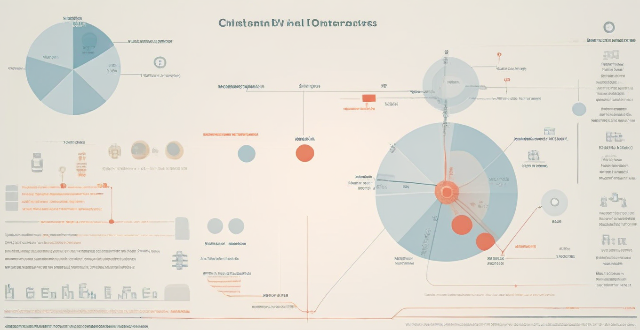
What is the importance of sharing climate information globally ?
Sharing climate information globally is crucial for understanding, predictSharing climate information globally is crucial for understanding, predictating the effects of climate change aids in modeling and forecasting future scenarios, and contributes to the development of early warning systems. Additionally, it fosters innovation, collaboration, and the formation of international agreements and policies related to climate change.
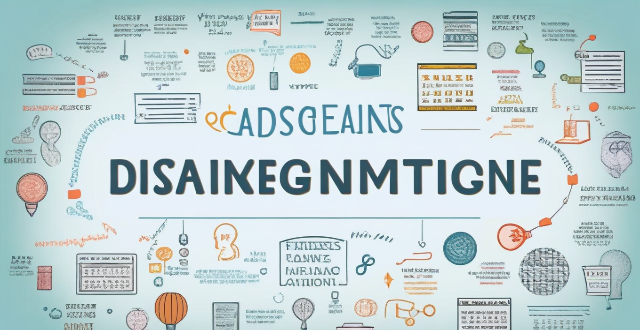
What are the challenges faced while sharing climate information across different countries ?
The text discusses the challenges faced while sharing climate information across different countries. The challenges include language barriers, data standardization, technical infrastructure, legal and policy frameworks, political will and cooperation, education and awareness, financial constraints, cultural differences, time zones and coordination, and quality assurance and control. Addressing these challenges through international cooperation, standardization efforts, and investment in technology and education can improve the sharing of climate information, leading to better informed decisions and more effective actions against climate change.

What are the benefits of using Family Sharing with my Apple ID ?
Family Sharing with Apple ID offers benefits such as shared purchases, iCloud storage, location sharing, screen time management, and shared subscriptions. It allows up to six family members to share these features conveniently while saving money on subscriptions and storage plans.

What are some good tools for creating and sharing study materials ?
This article discusses various tools that can be used for creating and sharing study materials. Google Docs, Canva, and Quizlet are some of the best tools for creating study materials, while Dropbox, Padlet, and Edmodo are great for sharing them. These tools offer features like collaboration, accessibility, integration, design, gamification, storage, security, visualization, educational focus, and assessment. By utilizing these tools, students can enhance their learning experience and collaborate with others more efficiently.

What role does data privacy play in the use of data analytics in education ?
Data privacy is a crucial aspect of educational data analytics, ensuring the protection of student information, compliance with legal frameworks, and building trust among stakeholders. It encompasses measures such as maintaining confidentiality, integrity, and availability of data, adhering to regulations like FERPA, and obtaining explicit permission from students and parents. Challenges include potential misuse of data, bias, and discrimination. Best practices involve developing clear policies, implementing technical measures like encryption and access controls, and educating staff and students about their rights. By addressing these challenges and implementing best practices, educational institutions can harness the power of data analytics while safeguarding the privacy rights of their students.

Is it safe for women to use ride-sharing services like Uber when traveling ?
Ride-sharing services like Uber have become increasingly popular among travelers due to their convenience and affordability. However, safety concerns have been raised, especially for women who may be more vulnerable to certain risks. In this response, we will explore the safety aspects of using ride-sharing services for female travelers. Ride-sharing services like Uber have implemented several safety features to ensure the well-being of their passengers. These include driver screening, GPS tracking, in-app communication, and emergency assistance. Women can further mitigate potential risks by verifying the driver's identity, sharing trip details, choosing well-lit areas, and staying alert during the ride. Overall, ride-sharing services like Uber can be safe for women when traveling, provided that they exercise caution and utilize the safety features offered by these platforms. By following best practices such as verifying driver identity, sharing trip details, choosing well-lit areas, and staying alert during the ride, women can significantly reduce potential risks associated with using ride-sharing services. It is also essential to report any safety concerns to the appropriate authorities and the ride-sharing company to help improve overall safety standards for all users.

How does Family Sharing work for content synchronization across multiple Macs and iOS devices ?
Family Sharing allows up to six family members to share content and services across their Macs and iOS devices. This includes music, movies, TV shows, books, apps, and location information. To set up Family Sharing, follow the steps on your iPhone, iPad, iPod touch, Mac, or Apple TV. Once set up, family members can share purchased apps, games, music, movies, TV shows, books, and photos. They can also share their locations using the Find My app. Managing family members and content restrictions is possible through the Family Sharing settings on your device. Overall, Family Sharing makes it easy for families to share content while maintaining control over what content is accessible by each family member.
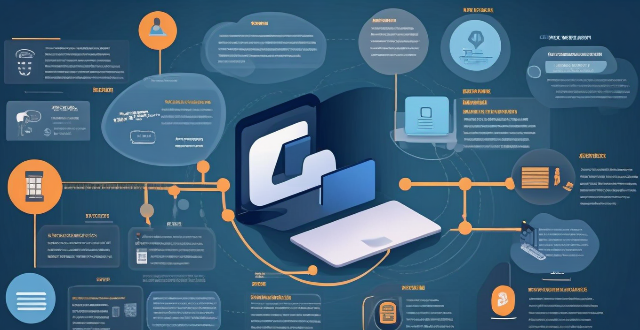
How do data protection regulations apply to social media platforms ?
This article discusses the crucial role of data protection regulations in safeguarding user information on social media platforms. It outlines key principles such as transparency, purpose limitation, and accountability that guide the handling of personal data by these platforms. The responsibilities of both social media platforms and users are highlighted, emphasizing the importance of informed consent, security measures, and user control. The article concludes by stressing the mutual responsibility of platforms and users in promoting a safe online environment through adherence to data protection regulations.
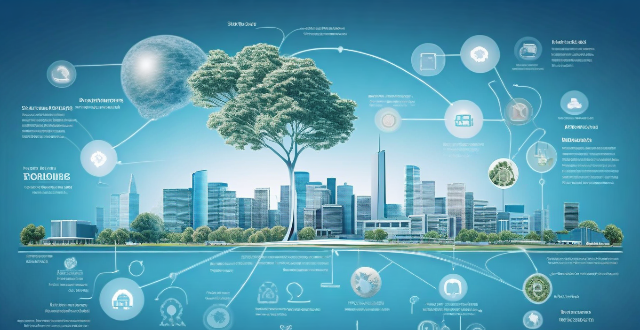
How is blockchain technology being used to secure patient data in the healthcare sector ?
Blockchain technology is transforming healthcare by securing patient data through decentralization, immutability, encryption, and smart contracts. It also facilitates interoperability, standardizes data formats, and enables supply chain management and audit trails. This technology enhances patient care and privacy, with potential for further innovations in the future.

What is data privacy ?
Data privacy is the protection of personal information from unauthorized use. It's important for individual rights, building trust, legal compliance, and risk mitigation. Principles include data minimization, anonymization, encryption, transparency, consent, access control, retention, integrity, and accountability. Best practices involve regular audits, employee training, updating policies, secure systems, and response plans for data breaches.

What are the challenges faced in climate data analysis and how can they be overcome ?
## Topic Summary The article discusses the challenges faced in climate data analysis and proposes solutions to overcome these obstacles. The primary challenges include lack of accessible and reliable data, inconsistent methodologies, limited computational capabilities, and biased or incomplete models. To address these issues, the article suggests collaboration and data sharing among researchers and organizations, standardized methods and guidelines for analysis, cloud computing and remote access for computational needs, and continuous improvement and validation of climate models. By implementing these solutions, researchers can enhance the accuracy and reliability of their climate data analysis, leading to more accurate predictions and effective strategies for mitigating climate change.

How can I control who has access to my personal data ?
How can I control who has access to my personal data? To control who has access to your personal data, it's important to: 1. Understand what personal data you have and where it is stored. 2. Review privacy policies and settings of websites and apps you use regularly. 3. Use strong passwords and two-factor authentication to protect your accounts. 4. Limit the amount of personal data you share online. 5. Regularly review and update your privacy settings. By taking these steps, you can help protect your personal data from unauthorized access and ensure that it remains private.
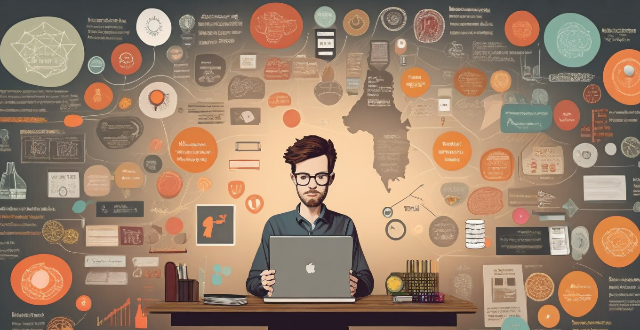
What are some common challenges faced by educators when implementing data analytics in their classrooms ?
Educators face several challenges when implementing data analytics in their classrooms, including a lack of training and support, limited access to technology and data, time constraints, resistance to change, and privacy and ethics concerns. These challenges can make it difficult for teachers to effectively integrate data analytics into their teaching practices, potentially limiting the benefits that data-driven strategies can offer for improving student outcomes.

What is the role of a network hub in a computer network ?
In this text, the role of a network hub in a computer network is discussed. The main functions of a network hub are data transmission, connectivity, and collision domain management. However, the device also has limitations such as bandwidth sharing, security risks, and scalability issues. Despite its importance in connecting devices and allowing resource sharing, more advanced networking devices are often used in larger and more complex networks to overcome these limitations.
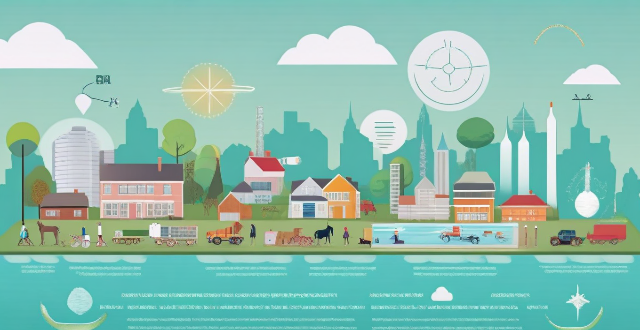
How can developing countries benefit from climate information sharing ?
Climate information sharing is vital for developing countries to address climate change challenges, offering benefits such as improved agricultural planning, disaster risk reduction, public health protection, economic development, and informed policy-making. By utilizing this data, these nations can adapt to environmental changes, build resilience, and ensure sustainable growth.

What are the ethical considerations while sharing climate information ?
Sharing climate information is crucial but must be done ethically. Key considerations include: accuracy and transparency, fairness and impartiality, respect for privacy, responsibility towards vulnerable groups, clarity and accessibility, and encouraging dialogue and action. By prioritizing these principles, we can communicate about climate change effectively and responsibly.
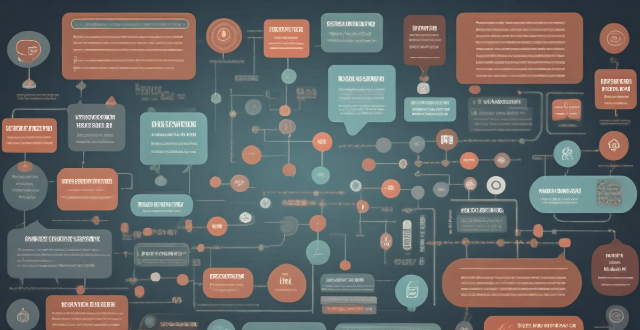
How do data protection regulations impact marketing strategies ?
Data protection regulations significantly impact marketing strategies by dictating how companies can collect, store, and use personal information. Marketers must adapt their strategies to comply with these regulations while achieving business objectives. Key areas affected include obtaining explicit consent for data collection, minimizing data collection, providing individuals with the right to access and erasure of their data, ensuring robust data security measures, and being aware of restrictions on international data transfers. By adhering to these requirements, marketers can build trust with consumers and maintain a positive brand image in today's data-driven world.

What are the penalties for non-compliance with data protection regulations ?
Non-compliance with data protection regulations can result in significant penalties, including fines, legal action, and damage to a company's reputation. The specific penalties depend on the jurisdiction and the severity of the violation. Some common consequences include: - Fines and Financial Penalties: GDPR violations can result in fines up to €20 million or 4% of global annual turnover for less severe infringements, and up to €40 million or 8% of global annual turnover for more serious violations. CCPA violations can result in fines up to $2,500 per violation for each time a Californian resident's rights are violated, and up to $7,500 per violation if the violation involves selling or sharing personal information without consent. - Legal Action: Class action lawsuits initiated by individuals or groups may claim damages for non-compliance, with potential for large settlements depending on the number of affected parties and the severity of harm caused. Government investigations may involve possible subpoenas and audits to assess compliance levels and potential violations, as well as enforcement actions such as cease and desist orders or demands to implement corrective measures. - Reputational Damage: Loss of trust from customers when data breaches occur can erode customer faith in a company's ability to protect their information, and negative publicity from data misuse can permanently harm a company's brand image. Difficulty in partnerships and deals may arise, with other companies ending collaborations due to associated risks, and potential investors being wary of putting money into a company with known compliance issues. - Market Access Restrictions: In extreme cases, a company might be prohibited from handling certain types of data, and some regions might restrict entry to companies that have a history of non-compliance. - Corrective Measures and Costs: Technical and organizational changes may be required, such as upgrading systems to ensure compliance with technical standards like encryption and security protocols, and employee training to improve understanding of data protection laws and best practices. Legal fees for representation in legal proceedings or during investigations, and settlement payments to resolve class action lawsuits or government enforcement actions, may also be necessary. It is crucial for organizations to prioritize data protection compliance as part of their business strategy to avoid these adverse effects.

How does climate information sharing help in mitigating climate change ?
Climate information sharing is vital for mitigating climate change by enabling informed decision-making, raising public awareness, supporting research and innovation, promoting international cooperation, facilitating adaptation strategies, and leveraging technology. It empowers governments, businesses, communities, and individuals to take actions that reduce greenhouse gas emissions and adapt to the changing climate.

What are the latest trends and advancements in climate data analysis technology ?
Latest Trends and Advancements in Climate Data Analysis Technology Climate data analysis has become increasingly important in recent years as scientists work to understand the impact of climate change on our planet. With advancements in technology, new methods for analyzing this data have emerged, leading to a better understanding of the complexities of the climate system. Here are some of the latest trends and advancements in climate data analysis technology: Artificial Intelligence and Machine Learning: One of the most significant developments in climate data analysis is the use of artificial intelligence (AI) and machine learning (ML). These technologies can process vast amounts of data quickly and accurately, allowing researchers to identify patterns and trends that would be difficult or impossible to detect manually. For example, AI and ML algorithms can analyze satellite images to track changes in ice coverage or monitor deforestation rates. Big Data Analytics: The volume of climate data available today is enormous, and big data analytics tools are essential for managing and interpreting this information. These tools can help researchers identify correlations between different variables, such as temperature changes and extreme weather events. They can also be used to create predictive models that forecast future climate conditions based on current trends. Cloud Computing and Remote Sensing: Cloud computing has made it possible for researchers to access and share large datasets from anywhere in the world. This has led to increased collaboration among scientists working on climate-related projects. Remote sensing technologies, such as drones and satellites, are also being used more frequently to collect climate data. These tools can provide real-time information about changes in the environment, allowing researchers to respond quickly to emerging issues. Blockchain Technology: Blockchain technology is another promising development in climate data analysis. By using a distributed ledger system, blockchain can ensure that climate data is secure, transparent, and immutable. This means that once data is recorded on the blockchain, it cannot be altered or deleted, ensuring its integrity over time. Additionally, blockchain can facilitate the sharing of climate data across organizations and countries without compromising security or privacy concerns. Citizen Science and Crowdsourcing: Citizen science and crowdsourcing initiatives have become increasingly popular ways to gather climate data. These programs involve members of the public in collecting and contributing data about their local environments. By harnessing the power of crowdsourcing, researchers can gather vast amounts of data from diverse locations around the world, providing valuable insights into global climate patterns and trends.

What are some examples of data breaches and how do they affect individuals ?
Data breaches have become a pervasive issue in the digital age, affecting millions of individuals worldwide. These incidents can compromise sensitive information and have far-reaching consequences for those affected. In this discussion, we will explore some notable examples of data breaches and examine how they impact individuals.

What are the potential economic benefits of sharing climate information ?
The potential economic benefits of sharing climate information include improved decision making through better planning and management, risk assessment and mitigation, increased efficiency and productivity, innovation and new business opportunities, and growth of the green economy. By leveraging this information effectively, businesses, governments, and individuals can adapt to changing climatic conditions while minimizing risks and maximizing economic gains.

How does data encryption affect computer performance ?
Data encryption is crucial for securing data but can affect computer performance by increasing processor load, memory usage, disk I/O, network latency, and reducing battery life.

Why is data encryption important for online security ?
Data encryption is crucial for online security, protecting dataData encryption is crucial for online security, protecting data the financial impact of breaches It has evolved from ancient uses to a critical tool in today's digital landscape, with AI optimizing key management and enhancing algorithms.
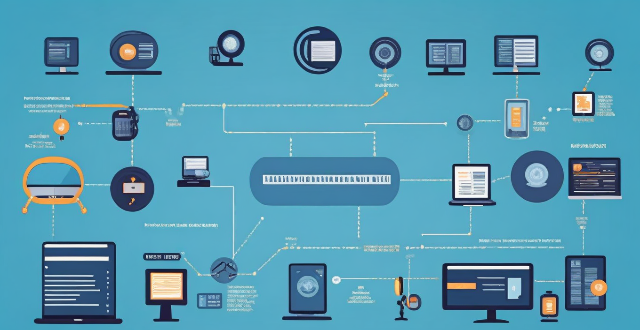
What are the benefits of having an unlimited data plan ?
An unlimited data plan offers benefits such as no data caps or overage charges, the ability to stream videos and music without worrying about data usage, using multiple devices simultaneously, working from anywhere, enjoying online gaming and social media, and better value for money.